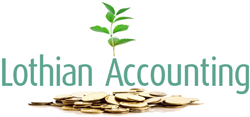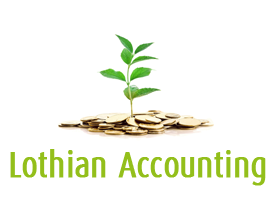The Chancellor’s Autumn Statement 2015: how does it affect owner-managed companies?
December 3, 2015

The Chancellor presented his Autumn Statement last Wednesday 25 November 2015. I have summarised in bullet form some of the key announcements that may affect your business. Please read on for more detail behind each announcement:
- Self-assessment changes to digital tax account! The government is introducing digital tax accounts for the self-employed and landlords for 2016/17. HMRC will allow interested parties to take part in its consultation on how landlords, the self-employed and also businesses can update HMRC quarterly on their tax affairs by 2020.
- Dividend tax. There has been no change to the new dividend tax which was announced on 8th July 2015 (summer budget 2015). For more information on dividend tax , read Lothian Accounting’s blog article: https://www.lothianaccounting.com/the-new-dividend-tax/
- Travel and subsistence relief -update for contractors. Relief will only be unavailable for contractors engaged through employment intermediaries if and only if they provide their services through a personal service company where IR35 legislation applies.
- Entrepreneur’s relief on Capital Gains. The use of entrepreneur’s relief, where capital gains are taxed at 10% (rather than 18% and 28% rates) was restricted in 2015-16. The Finance Bill 2016 may now ensure entrepreneur’s relief is allowed where a genuine commercial transaction exists.
- Tax incentivised investment schemes. Energy generation activities will now be excluded from Venture Capital Trust (VCT), Enterprise Investment Schemes (EIS) and Social Investment Tax Relief (SITR) schemes.
- Apprenticeship levy will be paid by large employers (wage bill over £3m) from April 2017.
- Auto enrolment will apply to all employers by 1 April 2017 but there has been a delay in the 2 step employer minimum contribution.
- Diesel company cars. The supplement of 3% which is used to calculate the taxable benefit of diesel company cars will remain until April 2021.
- Stamp Duty Land Tax (SDLT) for additional residential property. An extra 3% on top of current SDLT rates will be introduced from 1 April 2016 for buying additional residential property (over £40,000). There will however be certain exclusions for companies making significant investment in residential property. SDLT does not apply in Scotland so this will not affect the purchase of Scottish residential properties which are subject to land and buildings transaction tax (LBTT).
- General Anti Abuse Rule (GAAR): the new penalty for GAAR is set at 60% of the tax at stake and will be legislated in the Finance Bill 2016.
- The Scotland Bill is expected to receive Royal Assent in early 2016 and work on the new fiscal framework continues.
Digital tax accounts
The government has announced that it will invest £1.3 billion to transform HMRC into one of the most digitally advanced tax administrations in the world.
As announced in the Summer Budget 2015, the government wants to introduce digital tax accounts to replace the current self-assessment system.
This should lead to HMRC collecting tax payments earlier in most cases.
Key details so far are:
- Digital tax accounts for all small businesses and individuals will be introduced by 2016/17.
- Most businesses, landlords and the self-employed will need to update HMRC quarterly regarding their tax affairs by 2020 –further details in the consultation due in 2016.
- The aim of the consultation is to look at ways to simplify tax payments with suggestions of tax payable as profits arise.
HMRC has issued a user-friendly document to explain how it intends digital accounts to work: HMRC digital accounts document
Dividend tax
There was no further commentary on the Summer Budget 2015 announcement of an increase in dividend tax rates and the dividend allowance due to apply from April 2016.
The expectation is that these will be introduced in the Finance Bill 2016 as previously announced. For further information, see Lothian Accounting’s blog article: https://www.lothianaccounting.com/the-new-dividend-tax/
Travel and subsistence (meals, accommodation etc.) relief restrictions – update for contractors
HMRC has concluded a consultation on restricting tax relief for travel and subsistence for workers engaged through employment intermediaries: HMRC travel and subsistence consultation document
Good news for contractors not operating under IR35!
The restrictions on tax relief for travel and subsistence will only now apply to workers providing services through personal service companies where the intermediaries legislation (also known as IR35) applies.
The new restrictions will be imposed from 6 April 2016.
Entrepreneur’s relief
The use of entrepreneur’s relief, where capital gains are taxed at 10% (rather than 18% and 28% rates) was restricted in 2015-16.
Good news! The Finance Bill 2016 may now ensure entrepreneur’s relief is allowed where a genuine commercial transaction exists.
Further information is contained at ICAEW technical release
Incentivised investment
All remaining energy generation activities will be excluded from Enterprise Investment Schemes (EIS), Venture Capital Trusts (VCT) and Social Investment Tax Relief (SITR) schemes from 6 April 2016.
The primary aim of these schemes is to provide funding for small companies but often as part of new investment some reorganisation of capital may be needed. This can involve the need to purchase the shares of existing shareholders (called “replacement capital”).
There will now be increased flexibility for replacement capital within the EIS and VCT schemes, all subject to state aid approval, but this should make it easier for investors and companies to operate within the scheme.
Apprenticeship levy
The Government intends to introduce an apprenticeship levy paid by large employers from April 2017.
The levy will be set at 0.5% of an employer’s pay bill and will only be paid over a £15,000 threshold. The employer’s pay bill is the total amount of earnings paid to the employer’s employees but excludes benefits in kind.
The levy will therefore not apply to small companies unless the wage bill exceeds £3m
Automatic enrolment (“Auto-enrolment”) for pensions
Employers with more than 30 employees must now enrol employees in a workplace pension (called “Auto-enrolment) and this Auto-enrolment will apply to all employers by 1 April 2017.
There will be a two step rise in the minimum rate of employer and employee pension contributions required under the auto-enrolment regime but this will now be delayed to April 2018 and April 2019.
Minimum contributions are being introduced gradually over time. Pension scheme contributions are either a fixed amount or are based on a percentage of earnings.
| Date |
Employer minimum contribution |
Total minimum contribution |
| From Employer’s staging date |
1% |
2% |
| From 6 April 2018 |
2% |
5% |
| From 6 April 2019 |
3% |
8 |
Company car benefits — diesel cars
Currently the appropriate percentage used to determine the amount of tax due on an employee’s use of a company car is three percentage points higher if the car in question runs on diesel.
That 3% supplement was due to be abolished for 2016/17 onwards, but the Chancellor announced today that the supplement will remain in place until April 2021.
Stamp Duty Land Tax (SDLT) changes
An additional 3% on top of the current SDLT rates will be introduced from 1 April 2016 for buying additional residential property (over £40,000).
The use of the property is irrelevant and so it will apply whether it is to be rented or used as a second home.
Companies and funds making “significant investments in residential property” (thought to be a minimum of 16 residential properties) are likely to be exempt from the additional charge.
SDLT does not apply in Scotland so this will not affect the purchase of Scottish residential properties which are subject to land and buildings transaction tax (LBTT).
From April 2017, SDLT will be paid within 14 days of completing a property purchase rather than the current 30 day limit.
If you would like to talk more about how the Chancellor’s Autumn Statement might affect you, please call me or drop me an email.






